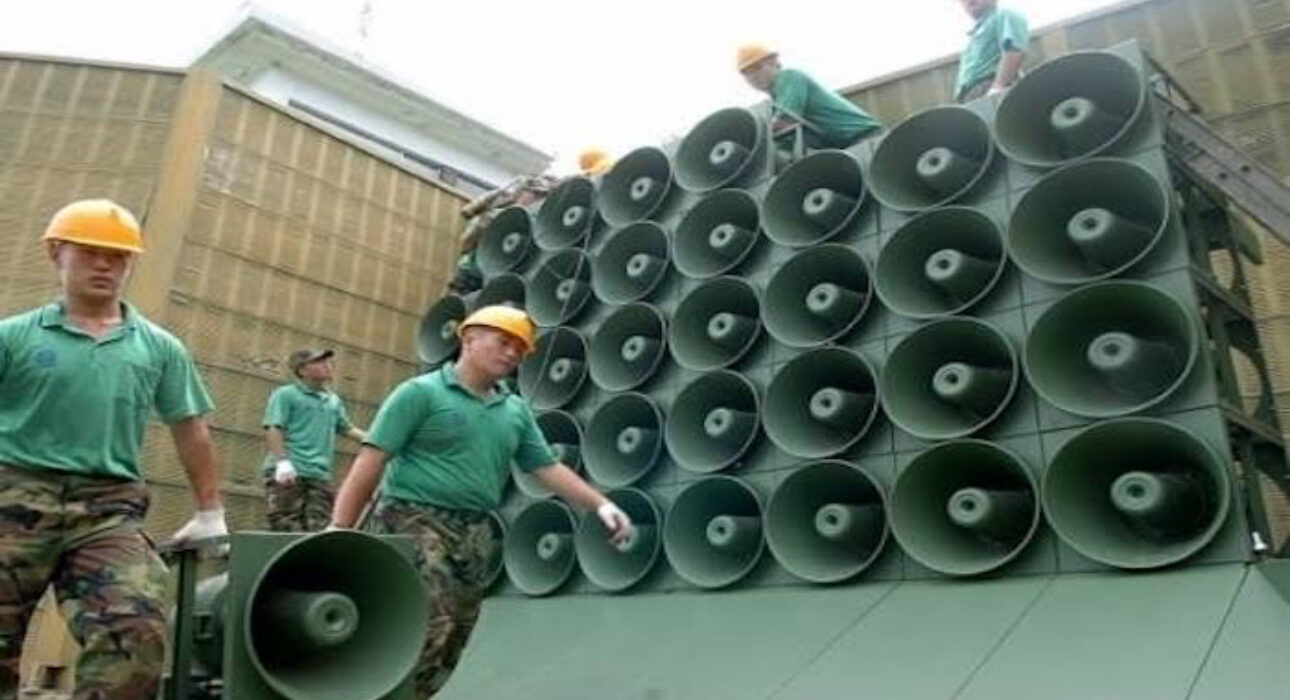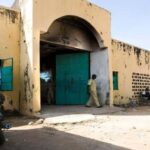South Korea Dismantles Propaganda Loudspeakers Along DMZ as President Lee Seeks Dialogue with North Korea

In a symbolic, yet strategic move, South Korea has begun dismantling propaganda loudspeakers along its border with North Korea in a bid to reduce tensions and revive long-stalled diplomatic engagement.
The initiative comes under the directive of President Lee Jae-myung, who has made de-escalation and inter-Korean reconciliation a hallmark of his administration since taking office earlier this year.
The loudspeakers—positioned along the heavily fortified Demilitarized Zone (DMZ)—were used to blast K-pop music, democratic messages, and anti-regime broadcasts into North Korea.
They had long been part of Seoul’s psychological warfare toolkit but also a source of provocation, drawing retaliatory broadcasts and threats from Pyongyang.
The dismantling began early Monday morning in locations such as Paju and Yeoncheon, according to South Korea’s Ministry of National Defense.
Spokesperson Lee Kyung-ho confirmed the move was unilateral, emphasizing it was “intended to create a conducive environment for future dialogue” and not done in coordination with North Korea.
The decision follows President Lee’s order in June 2025 to halt the broadcasts, signaling a clear shift away from the confrontational posture adopted by the previous conservative government.
That administration had resumed the loudspeaker operations in mid-2024, in retaliation to North Korea’s balloon launches carrying propaganda and refuse into the South.
So far, North Korea has not officially responded to the dismantling efforts. In late July, however, Kim Yo Jong, sister of North Korean leader Kim Jong Un and a key regime spokesperson, dismissed South Korea’s overtures as “superficial sentiment” unless backed by more substantive policy changes, such as a reduction in Seoul’s military cooperation with the United States.
Experts say Pyongyang remains highly skeptical of any outreach, especially amid its deepening ties with Russia and a perceived hardening of U.S. policy in the region.
The loudspeakers had previously been silenced in 2018 during a brief diplomatic thaw spearheaded by former South Korean President Moon Jae-in. That thaw collapsed in subsequent years, and tensions surged again in 2024 following renewed provocations from both sides.
By dismantling the systems, President Lee’s administration hopes to reset the tone of inter-Korean relations.
The move is also being closely watched by international observers, including the United States and China, who have a stake in the stability of the Korean Peninsula.
While the decision has been praised domestically by peace advocates, critics argue it risks appearing weak in the face of North Korea’s continued provocations and arms buildup. Some analysts caution that without reciprocal gestures from Pyongyang, the dismantling may yield few tangible results.
Nevertheless, President Lee appears committed to the path of dialogue.
“We must rebuild trust, even in small steps,” he said during a recent national security briefing. “Peace on the peninsula is not a passive wish; it requires active courage.”
The removal of the DMZ loudspeakers marks a clear turn in South Korea’s approach to its northern neighbor—a step away from confrontation, and toward cautious diplomacy.
Whether North Korea will reciprocate, however, remains the central and unresolved question.









